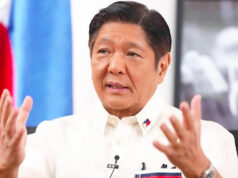DICT offers DoJ use of its PNPKI digital certificates
THE Department of Information and Communications Technology (DICT) offered its Philippine National Public Key Infrastructure (PNPKI) digital certificates to the prosecutors and officers of the Department of Justice — National Prosecution Service (DoJ-NPS).
This was in response to the DoJ’s issuance of general rules and procedures for the conduct of electronic and online inquest proceedings (e-inquest) in the National Capital Region (NCR) during the duration of the Luzon enhanced community quarantine.
Department of Interior and Local Government (DILG) Secretary Eduardo M. Año earlier said that cases against those who violate the enhanced community quarantine provisions in Luzon will be filed through the online e-inquest platform.
He added they have made arrangements with the DoJ on the use of the e-inquest. Hearings on the cases will be held after the lockdown is lifted.
The DICT also encouraged the public to avail of digital certificates to expedite and secure online work transactions.
“With the increasing adoption of work-from-home arrangements in both the public and private sector, there is a pressing need to secure the integrity of documents and information over digital networks. This is where the digital certificates come in. Digital certificates act as proof of an individual or a machine’s electronic identity. It allows people to digitally sign and encrypt pending work documents,” the DICT said in a press release Friday.
Pursuant to Executive Order (EO) No. 810 series of 2009, the DICT operates the Root Certification Authority (RootCA) and Government Certification Authority (GovCA) “for the processing and issuance of digital signature certificates for e-government services to ensure confidentiality, authenticity, integrity and non-repudiation of electronic transactions in the government.”
The Department also released Department Circular 06, which provides the guidelines for alternative means of applying and issuing of digital certificates for external clients from various government agencies, private entities and the general public during the declared state of public health emergency. — Genshen L. Espedido



